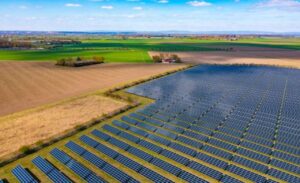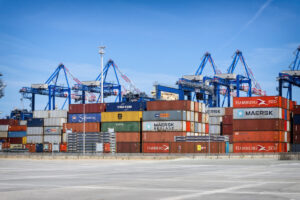DP World Southampton’s container terminal has become Britain’s first terminal to eliminate fossil diesel from its operations entirely and turn to Hydrotreated Vegetable Oil (HVO).
Fossil diesel previously accounted for 90 per cent of the terminal’s emissions. The newly adopted HVO – a renewable biodiesel derived from sustainable sources – is set to eliminate more than 80 per cent of net carbon dioxide emissions as well as significantly reducing nitrogen oxide, particulate matter, and carbon monoxide.
“I am delighted that we have successfully made the leap to fuelling all of our fleet and installations at Southampton with HVO,” said John Trenchard, UK Supply Chain Director at DP World.
“This innovation shows our determination to continue playing our part in helping the UK meet its target of delivering the Government’s Net Zero 2050 policy and improving local air quality.”
DP World has estimated that HVO will save around 14,000 tons of carbon dioxide on an annualised basis.
HVO is one of many alternative solutions tested by DP World. The first trials for HVO began last year, using the fuel in forklift trucks, reefer generators, and straddle carriers.
DP World has further released that its new Berth 4 at London Gateway could be 100 per cent electric when it is completed in 2024.
The project cost £9 million (nearly $12 million), supported by a grant from the Solent Local Growth Deal through the Solent Local Enterprise Partnership (LEP).








